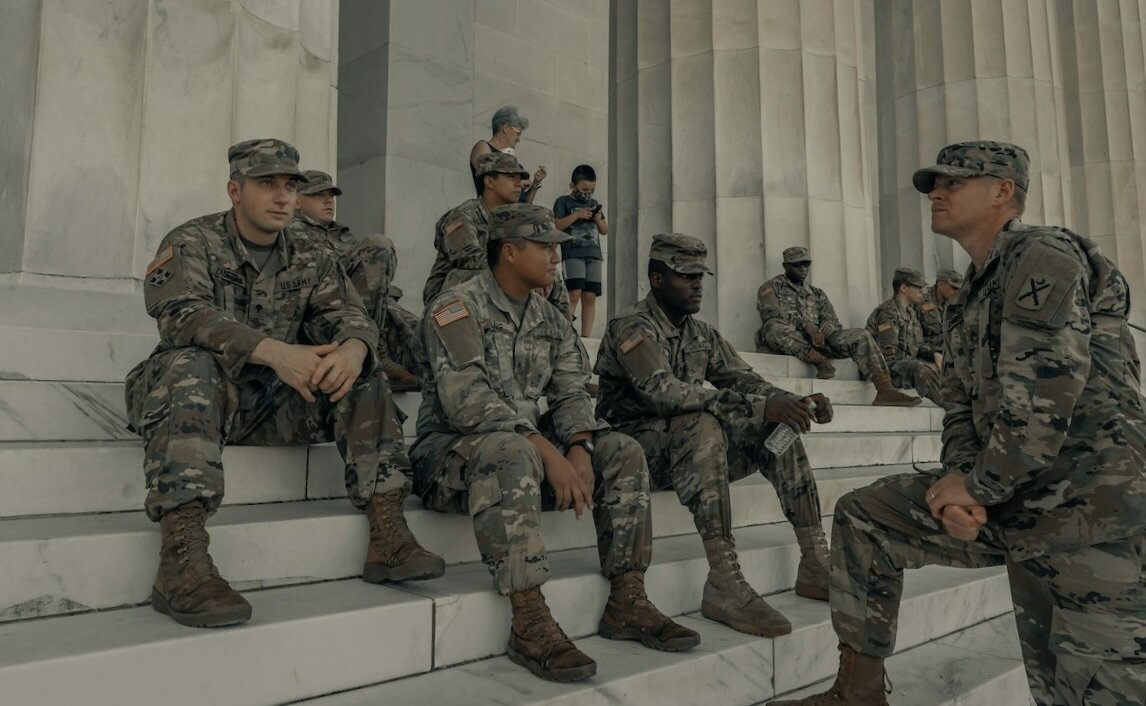On April 22 (2024) Ukrainian President Volodymyr Zelenskyy imposed new restrictions on online gambling in the military and on gambling operators during wartime in his country. The most notable move is an outright ban on military member gambling that will run until the end of martial law. Moreover, operators are no longer permitted to use symbols of armed forces in their marketing communications. Other new rules apply countrywide, requiring operators to limit the duration of gaming sessions and the number of accounts a user can register along with the sum an individual can gamble each day. Meanwhile, Apple and Google are being asked to remove unlicensed gambling applications from their respective app stores.
The campaign to restrict military gambling was spearheaded by Ukrainian army serviceman and renowned Kyiv activist Pavlo Petrychenko, who was killed in combat the week prior:
“Military personnel have been away from their families for the third year, in stressful conditions and without the possibility of full rest, so they are especially psychologically vulnerable. For many, gambling becomes the only way to cope with stress, and therefore quickly causes dopamine addiction and weakens their self-control […] There are cases when game-addicted servicemen spend all their money on games and take out microloans, thus putting themselves and their families in debt.”
Pavlo Petrychenko
President Zelenskyy carried Petrychenko’s vision through, which has other leaders and regulators from the around the world taking notice. This leads to an important question – should the U.S. military follow suit?
We might not be in the throes of war to the level of Ukraine, but we’re fighting another battle on U.S. soil in the form of problem gambling. Given the proven mental health consequences of sports betting and gambling in all of its forms, how can the defenders of our country be permitted to put themselves at risk? Gambling is not some inherent right and freedom in the Constitution, so pundits can’t play that card. At the very least it’s reasonable to suggest that greater regulation is required.
Should military be allowed to gamble? Read ahead and be the judge.
Why The U.S. Military Should Consider a Stronger Gambling Policy for Active Members of the Military
Proven Vulnerability to Gambling Disorder
Let’s begin with a look at the data. Research finds that problem gambling among active duty military is 3.5 times higher than among civilians. Further, the rate of problem gambling among active duty military is nearly 69 percent compared with almost 19 percent among civilians.
That’s a huge difference. It’s also a huge problem for a group of individuals who already struggle (more than the general population) with a long list of cooccurring mental and behavioral health challenges:
- Post traumatic stress disorder (PTSD)
- Anxiety
- Stress
- Depression
- Hypersexuality
- Agoraphobia
Do the Armed Forces need another concern to pile on to the mental health challenges that already challenge their ability to serve? And what about when they attempt to return to “normal” life after discharge?
“Avoid gambing. This is a vice which is productive of every possible evil, equally injurious to the morals and health of its votaries. It is the child of avarice, the brother of inequity, and father of mischief. It has been the ruin of many worthy families, the loss of many a mans honor, and the cause of suicide.”
George Washington to Bushrod Washington, 15 January 1783
Defense Against a Domestic Threat to Military?
As per Executive Order 9877, the primary function of the U.S. Armed Forces is to support and defend the Constitution of the United States against all enemies, foreign or domestic. The Order also stipulates that they are to safeguard the internal security of the United States as directed by higher authority.
Is it facetious to state that something that attacks the mental fortitude of American soldiers should be considered a domestic threat? Does compromised mental health of someone charged with safeguarding internal security not deserve greater scrutiny? The 1971 War on Drugs was a domestic policy led by the United States federal government that involved drug prohibition and military intervention. Correspondingly, the military had (and still has) a zero-tolerance policy when it comes to drug use. While problem gambling (which is a process addiction) is not classified in the same manner as substance addictions, many symptoms and consequences are the same. Knowing what we know, should regulators continue to allow, if not enable (more on this below), vulnerable servicepersons to participate in an activity that compromises their ability to serve the functions of Executive Order 9877?
Military Policy on Gambling is a Mess
What is the U.S. Armed Forces policy on gambling? Even servicepersons don’t know, with some launching queries within their own Reddit communities to find out.
The Department of Defense (DoD) Joint Ethics Regulation states the following:
“While on Government-owned or leased property or on duty for the Government (for military members, this means, in this context, present for duty), an employee shall not conduct or participate in any gambling activity, including operating a gambling device, conducting a lottery or pool, participating in a game for money or property, or selling or purchasing a numbers slip or ticket.”
Department of Defense (DoD) Joint Ethics Regulation 1993
Oddly, the DoD operates over 3,000 slot machines on overseas bases that produce over $100 million dollars of revenue each year. What kind of mixed message does this send to members of the military?
This lack of clarity is concerning with so many gaps and loopholes to leave a serviceperson’s head spinning. For instance, the Uniform Code of Military Justice (UCMJ) does not directly criminalize gambling in the military on its own, but there are stipulations. For instance, an officer of the U.S. Military cannot gambling with a subordinate service member under Article 134 of the UCMJ. At least this one is logical.
What past policy does not account for, however, is the 2018 removal of the federal ban on sports betting which placed regulation of sports betting in the hands of individual U.S. states. Further complicating matters is the proliferation of online gaming. Essentially, members of the military are beholden to state laws regarding online sports betting. So while active servicepersons are technically not allowed to gamble online when stationed at Schofield Barracks on Oahu (HI) they can get away with it at the largest U.S. military base in the world – Fort Liberty (formerly Fort Bragg) in North Carolina – which recently made online sports betting legal.
Regardless of whether or not the U.S. Armed Forces tighten up ship on gambling regulations, they must make existing policy more clear, and do a better job of enforcing it in light of the access that online gaming provides to active servicepersons.
Is Military Integrity Not as Important as Integrity in Professional Sports?
Does that question ruffle feathers? It should. There’s a lot of talk about gambling policy in professional sports. Policies for each league and organization (NFL, NBA, MLB, NHL, NCAA) can be found here, but they all profess to protect the integrity of the respective organizations and sport as a whole. It’s what got Toronto Raptors player Jontay Porter a lifetime ban from the NBA this month. It’s why the likes of Isaiah Rodgers continue to wait for reinstatement with the NFL. A potential policy violation is what had fans of the most popular MLB player of all time waiting with bated breath (Ohtani was cleared).
Gambling’s impact on the integrity of American sport is in the news with such great frequency that you’d think national security was at stake. Can that same attention (or more so) not be afforded to the defenders of our country? Is the integrity of the Army, Marine Corps, Navy, Air Force, Space Force, and Coast Guard not already beholden to a higher standard of integrity than the NFL, NBA, or MLB? These are important questions to consider as we move forward in this new society.
Kindbridge specializes in veteran and active military support services for mental and behavioral health concerns, gambling disorder included. Through our virtual network we are outfitted to service all veterans and active members of the U.S. military whether stationed locally or deployed abroad.
Note: Those residing in Colorado can take advantage of FREE mental health services for veterans, active duty personnel and family members.
Are You a Serviceperson Concerned About Your Relationship with Gambling?
CALL +1 (877) 426-4258
OR


